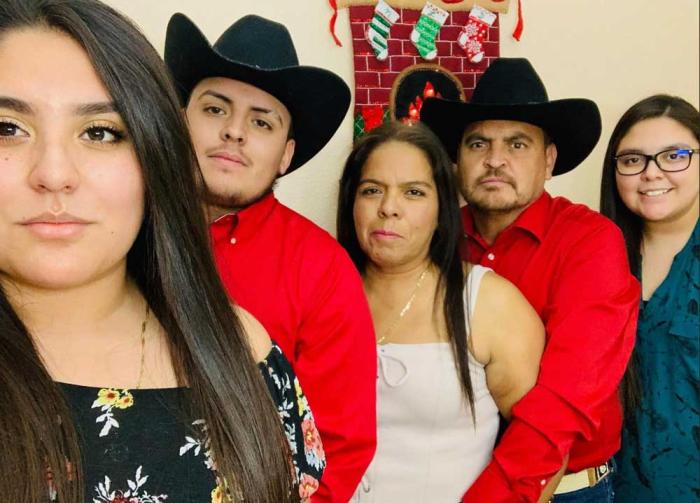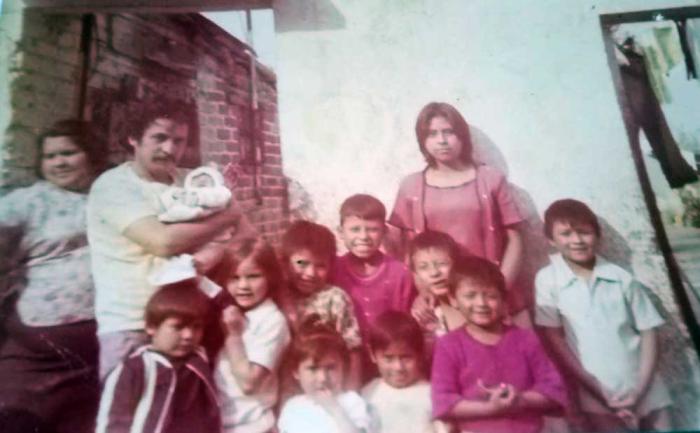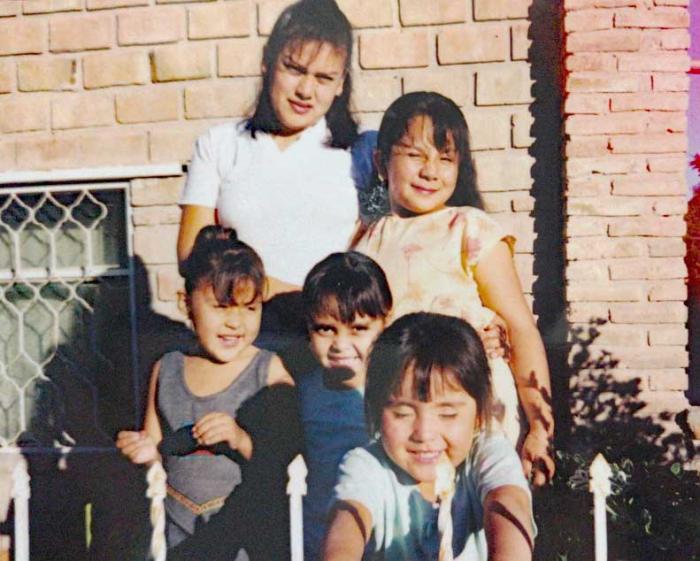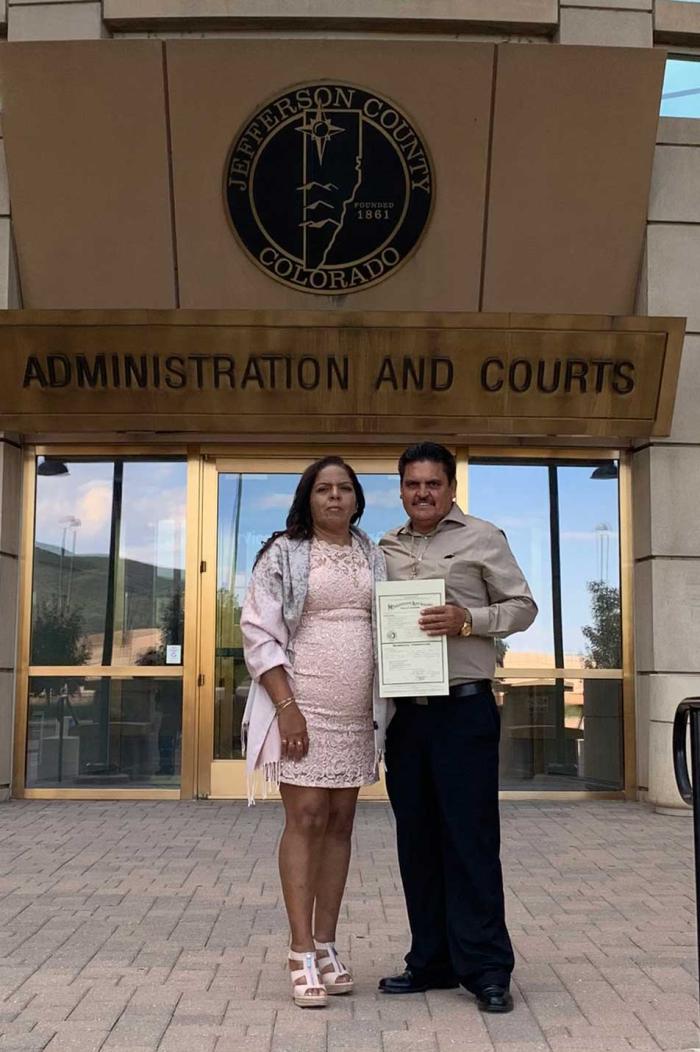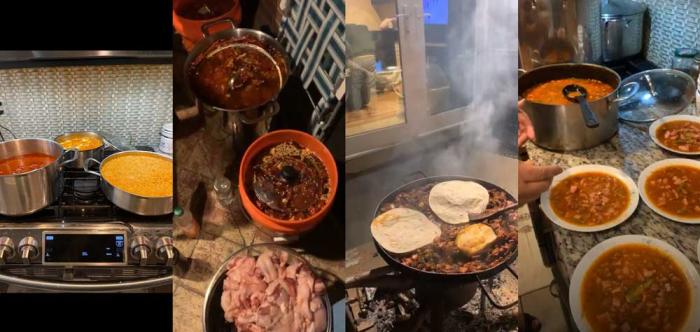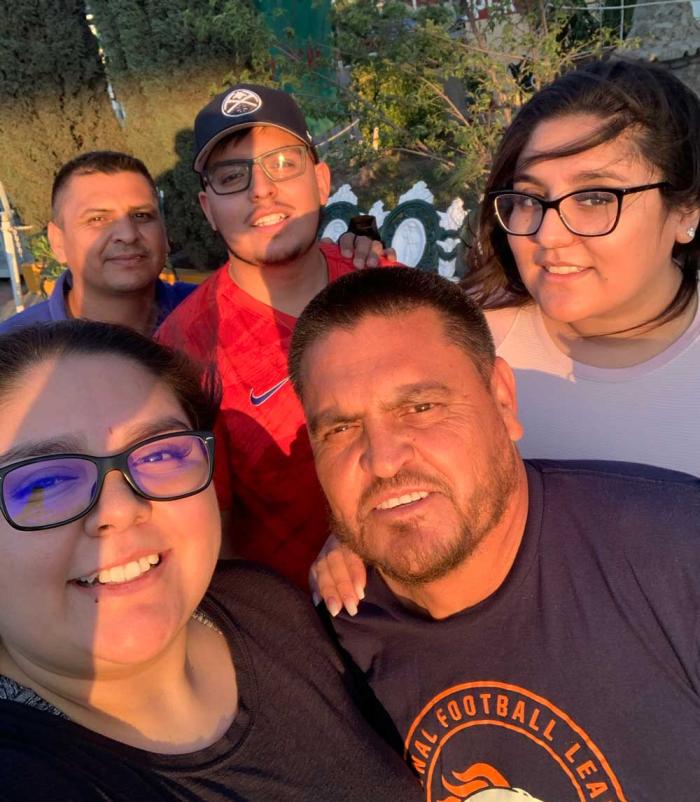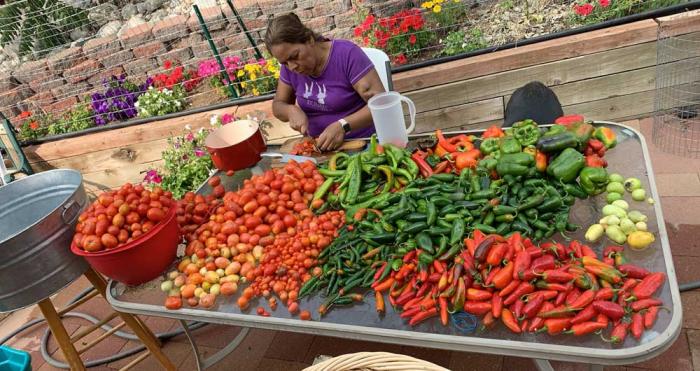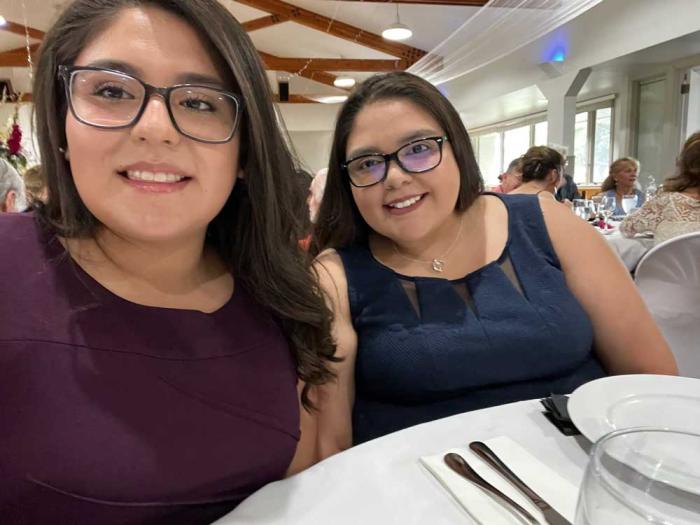The powerful role of family in Mexican culture
Editor’s note: Denver Water celebrates and embraces the cultures around us that shape who we are today.
Sept. 15 through Oct. 15 is National Hispanic Heritage Month, a time to recognize the contributions of Hispanic and Latino Americans to our nation. Just like our customers, Denver Water employees have diverse backgrounds and we’re proud of our rich cultural diversity that reflects the 1.5 million people we serve.
Tight-knit families are a cornerstone of Mexican culture. And for sisters Denise and Leslie Rendon, their family is one of the most important things in their lives.
The sisters, born 15 months apart, aren’t just close in age. They also live under the same roof with their growing family and work together at Denver Water.
Denise came to Denver Water in January 2019, where she works as a junior webmaster, helping to maintain the utility’s external websites, e-newsletters and providing support for the marketing team.
“Denver Water is such a great place to work, so of course, I had to recruit my sister to join me,” Denise said.
Her younger sister, Leslie, joined Denver Water in December 2021, working in the Customer Care center assisting customers with a variety of topics, questions and concerns.
A first-generation American looks back at the role that family, community and perseverance played in his life.
“I love my job because I get to help all kinds of people who reach out to us,” Leslie said.
“I feel especially rewarded when I have the opportunity to speak with someone in Spanish. I feel like I am making a difference because I can communicate and connect with them in their native language, which I believe makes them feel valued and comfortable when they contact Denver Water."
As first-generation Americans with Mexican immigrant parents, these sisters know from experience how important that support can be.
Mexican roots
Denise and Leslie’s father, Ignacio, was born in Mexico City. As a young boy he worked before and after school to help support his large family that included seven siblings.
At 5 years old, he bagged groceries and sold trinkets like gum and bubbles on the street corner. When he was 8, Ignacio’s family moved more than 600 miles north to Torreón in the Mexican state of Coahuila, which shares a border with Texas.
“One of my dad’s favorite stories about his childhood is when he rode on top of the train as a little boy all the way from Mexico City to Torreón. I thought that was something you just saw in movies and in cartoons, but he actually rode on the top of the train since that was the cheapest fare,” Denise said.
In the village of Ejido San Miguel, Denise and Leslie’s mother, Alejandra, also was working in fields.
“Our mother grew up picking cotton from a very young age to support her family; she had six siblings.
Of all of the kids — even her older sisters — she had the largest hands, and her claim to fame was that she was the best cotton picker out of all of them because of this,” Leslie said.
It was expensive for children to attend school, and Alejandra dropped out of middle school when she was 12 to help support the family by working as a housekeeper and nanny.
In her free time, she ran laps at the local baseball and soccer fields for exercise. That’s where 15-year-old Alejandra met Ignacio, who was playing soccer with his friends.
Read about the employees who make up Denver Water’s diverse culture.
The two began dating and attended church together, and Alejandra’s family became an important part of Ignacio’s life.
“When his parents moved to New Mexico for work, my father was left alone with his three younger siblings while in high school. My mother’s family helped him out and basically took him in as part of their own family,” Denise said.
Separation is common for many Mexican families who travel to the U.S. looking for seasonal work and must leave their children with extended family or in the care of older siblings.
After graduating high school, Ignacio secured a visa for himself and his siblings. They reunited with their parents in New Mexico and he got a job picking onions for the summer. But Ignacio quickly decided that was not a life he wanted, and he returned to Mexico to pursue a degree in electromechanical engineering.
Alejandra also decided to go back to school, enrolling in an accelerated program for adults to complete her middle and high school education.
The two studied together at the kitchen table every night, trying to keep their eyes open after long days of classes and work.
Building a life in America
When the Mexican peso crisis ignited a recession in Mexico in 1994, Ignacio left his job as a semi-truck mechanic to come to the U.S., arriving in Denver where some extended family members were living. He found a job working in a mine as a welder, and Alejandra joined him a few months later.
“Mom got a job working in a factory that made lip balm, and just like when she picked cotton as a young girl, she always wanted to be the best. She said other workers would comment on how fast she completed her work, and she bragged that when she was pregnant with me, she worked until the day I was born,” Denise said.
“She has always been such a hard worker.”
The young couple found a home in Denver where they welcomed their three children: daughter Denise, followed 15 months later by Leslie, then two years later son Ignacio Jr. “Nacho.”
“We had the best childhood. Our parents gave us everything they could and built a very happy life for us. But they also made sure we grew up living our Mexican culture,” Denise said.
Most of their family traditions centered around Mexican Catholic religious celebrations — and good food.
“My mother is a really good cook, so when we have parties and celebrations — like around holidays, weddings, baptisms, confirmations and quinceañeras — people come from all over for the food,” Leslie said.
Some of the family’s favorite dishes are asado (a type of red curry with pork), Spanish rice, sopa de fideo (a chicken stock-based noodle soup), Chile relleno (beef and potato stuffed peppers) cheese and onion enchiladas and fresh homemade salsa.
But without question, tamales are the family’s favorite dish.
“Since we were little, we’ve helped my mom make tamales. It’s very time consuming and an involved process, but when you have lots of hands to help out, it’s easier,” Denise said.
The family made tamales to share during holidays and would also sell them at community events and at school activities.
“They were always very popular, especially at school,” Leslie said.
Watch this video to make tamales with the Rendon family
While the children learned English in school, their parents required them to speak only Spanish at home. They watched Hispanic TV shows and listened to Spanish music.
“I remember going to my first middle school dance and I didn’t know any of the songs they were playing,” Denise said. “I told my parents: ‘I have to listen to American music and watch American TV shows, so I know what’s going on.’”
It was difficult for their parents to learn English, so from a young age, the children translated for them.
“I remember calling Denver Water when I was about 8 years old and talking with someone on the phone in English to pay our water bill,” Leslie said.
Learn about working at Denver Water.
Learning to advocate and translate for their parents would be a skill that would prove invaluable in the family’s future.
Hard times hit
A series of events in 2008 caused everything the family had worked toward to crumble.
As the U.S. economy dragged through the Great Recession, Ignacio suffered serious injuries, including herniated discs, in a car accident. He couldn’t do his construction job framing houses, a position he’d proudly held for 13 years.
With their savings dwindling, the family soon faced the foreclosure of their home.
“My sister and I were in middle school, and we were having to translate and explain to my parents a bunch of legal and bank documents that were well beyond our understanding. I had to talk with lawyers and try to explain all of those conversations to my parents throughout the foreclosure process,” Denise said.
Despite their best efforts, the Rendons became homeless, and the family of five spent the next two years living with friends and family members, bouncing between homes wherever space was available.
“It seemed like everyone we knew had lost their homes during that time. We were all looking for places to stay. At one point, we spent a few months living with an uncle, and there were 17 people in his house,” Denise said.
“Not too many great things happened over that two-year span.”
And when they thought they had hit rock bottom, Alejandra’s kidneys began to fail.
“My mother was told she wasn’t going to make it,” Leslie said.
“I knew that I had to speak up for her; I had to be her advocate. My mom had done everything, sacrificed everything for us, and I knew I would do anything I could to fight for her.”
Back on their feet
After a two-year struggle, the family regained its feet, moving into a home and Alejandra’s health stabilizing.
“The support of each other and our faith kept us together. My parents grew up poor in Mexico, and they were not going to let anything stop us from having a wonderful life,” Leslie said.
“That’s why, even now, whenever we are faced with adversity, we push through it. We do the best we can every day.”
Today, the Rendons are together, in a home filled with support and love.
“We all live together with our parents and have even added my brother’s fiancé and their newborn baby to our home,” Leslie said.
It’s normal in Mexico for families to stay together, sharing a large plot of land and building homes as needed as the family grows.
“One of the many things I love about our family is that we have dinner together every night,” Leslie said.
“The table doesn’t really fit all of us now, so we take turns and eat in shifts with some of us standing. But it’s a special time for us.”
And just as they did in the past, the Rendons continues to rely on each other.
“We’re always there for each other,” she said. “We make all our decisions as a family. What we went through was hard, but it has made us stronger.”


